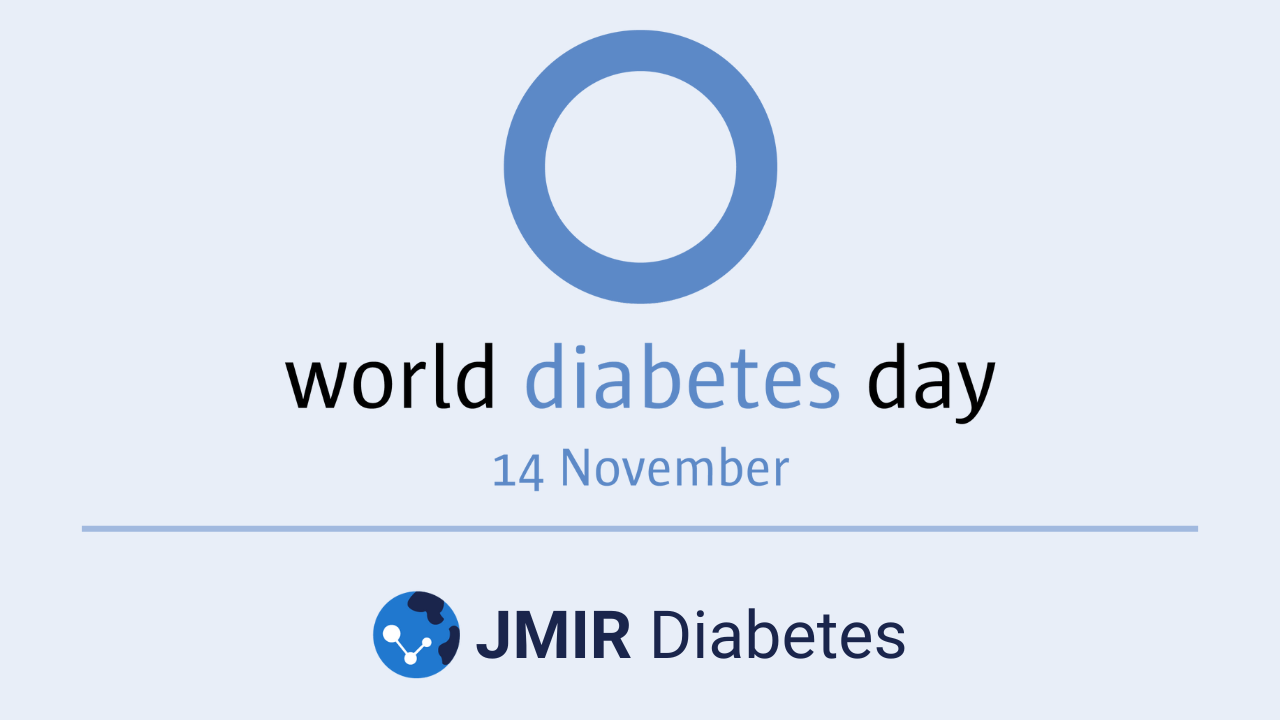Celebrating World Diabetes Day with JMIR Diabetes

November 14th marks World Diabetes Day, a critical moment to raise global awareness of a condition affecting hundreds of millions worldwide. This day, commemorating the birthday of Sir Frederick Banting, co-discoverer of insulin, is a reminder of both historical medical breakthroughs and the urgent need for continuous innovation in prevention, management, and care.
At the forefront of this innovation is JMIR Diabetes, a leading open-access journal dedicated to publishing the most transformative research at the intersection of diabetes and technology.
Beyond the Clinic: Technology Driving Diabetes Solutions
Diabetes care today is increasingly defined by digital health. From continuous glucose monitoring (CGM) systems that seamlessly track levels, to mobile apps that offer personalized coaching, technology is empowering individuals to take control of their health.
JMIR Diabetes is the essential resource tracking this evolution. The scope is broad and future-focused, ensuring that every significant development is rigorously vetted and disseminated. The journal focuses on:
- Technologies & Medical Devices: From wearable devices and mobile apps to closed-loop systems and the artificial pancreas.
- Informatics & Engineering: Including telemedicine, web-based patient education, and diabetes-specific electronic health record (EHR) improvements.
- Self-Management & Prevention: Publishing work on "quantified self" tools and innovations that empower users and prevent disease progression.
As an Open Access journal, every article published in JMIR Diabetes is freely available to researchers, clinicians, and—most importantly—patients themselves. Indexed in major databases like PubMed, Scopus, and Web of Science, and with a respectable impact factor of 2.6, we ensure that high-impact research accelerates real-world change.
Spotlight on AI: The Future of Patient Education
One of the most rapidly changing areas of care involves Artificial Intelligence (AI). Can AI models like ChatGPT and Google Gemini provide the clinical guidance that patients need?
Our most viewed article of 2025 tackles this crucial question head-on:
Agreement Between AI and Nephrologists in Addressing Common Patient Questions About Diabetic Nephropathy: Cross-Sectional Study
This research letter compared the responses of leading AI models with those of experienced nephrologists regarding common patient questions about diabetic nephropathy (a severe diabetes complication).
The study found that while AI models generally provided accurate information, their level of agreement with the nephrologists was minimal. This finding is critical: it suggests that while AI can be a helpful tool for patient education and quick answers, it is no substitute for thorough clinical discussions and the expertise of a healthcare professional.
This type of timely, high-impact analysis is exactly what JMIR Diabetes is committed to providing—giving researchers, patients, and clinicians the data they need to navigate the rapidly evolving world of digital diabetes care.
We invite you to read the full article or watch the video summary provided by one of the co-authors, Dr. Amir Abdipour from Loma Linda University Medical Center.
Join the Conversation
On this World Diabetes Day, we urge you to:
- Educate Yourself: Know the risk factors and warning signs of diabetes.
- Explore the Research: Dive into the latest studies on technologies for self-management, prevention, and care at JMIR Diabetes.
- Support Research: If you are a researcher or innovator, consider submitting your breakthrough work to us to help shape the future of diabetes care.
Subscribe Now

.png)
